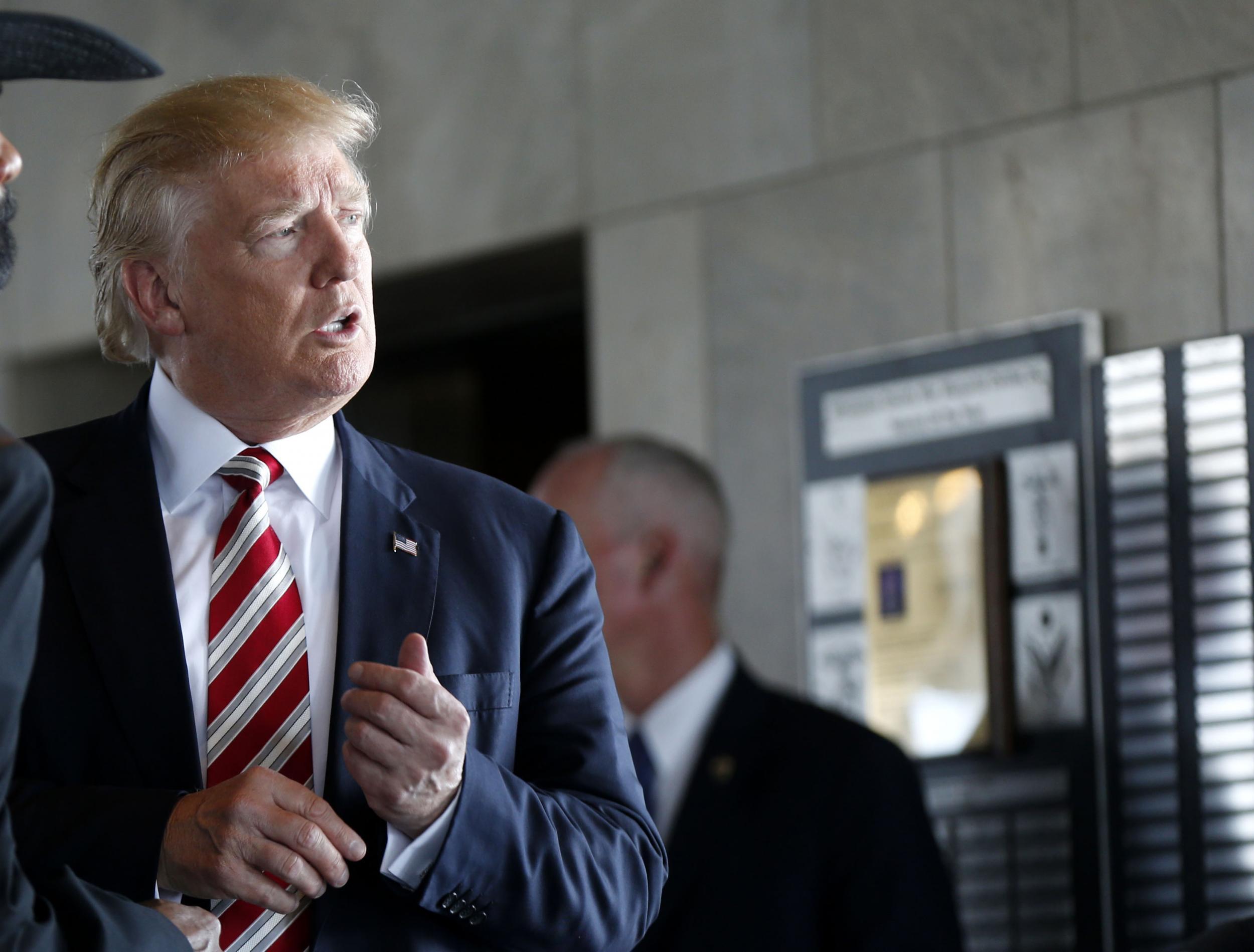Donald Trump's companies are 'at least $650m in debt'
Trump also reportedly relies on a stream of lenders and credit to prop up his opaque and complex network of partnerships and limited liability companies

Your support helps us to tell the story
From reproductive rights to climate change to Big Tech, The Independent is on the ground when the story is developing. Whether it's investigating the financials of Elon Musk's pro-Trump PAC or producing our latest documentary, 'The A Word', which shines a light on the American women fighting for reproductive rights, we know how important it is to parse out the facts from the messaging.
At such a critical moment in US history, we need reporters on the ground. Your donation allows us to keep sending journalists to speak to both sides of the story.
The Independent is trusted by Americans across the entire political spectrum. And unlike many other quality news outlets, we choose not to lock Americans out of our reporting and analysis with paywalls. We believe quality journalism should be available to everyone, paid for by those who can afford it.
Your support makes all the difference.“I’m very rich,” Donald Trump has often said to woo the crowds, talking about the fine marble in his hotels and the millions of dollars he has both given to the veterans and to funding his campaign.
A New York Times investigation has revealed, however, that his companies are carrying debt of at least $650m (£497m) – more than double the amount that he disclosed in public records.
While Allen Weisselberg, chief financial officer of the Trump Organisation, insisted to the newspaper that Mr Trump’s company was a tightly-run family business, his critics have argued that the Republican owns minority stakes in an opaque network of partnerships and limited liability companies, and relies on credit and loans to prop them up.
One example is an office building on Sixth Avenue in Manhattan, which is indebted by $950 million. The two major backers are the Bank of China and Goldman Sachs. Mr Trump has railed against China for not paying its fair share of taxes for “taking” American manufacturing jobs, and he has blasted his rival Hillary Clinton for accepting $675,000 in speaking fees from Goldman Sachs.
A significant chunk of his wealth is also beholden to three passive partnerships that owe a further $2bn in debt to a group of lenders, such as the ones who own the Sixth Avenue office building. If the loans were to default, the value of his investments would plummet, even if he were not held personally liable.
The investigation’s damning results come amid his refusal to release his tax returns, claiming he cannot do so while they are being audited, despite assertions to the contrary from billionaire investor and Clinton supporter Warren Buffett.
The claims of heavy debt also come shortly after Ms Clinton visited the abandoned, Trump-branded casino buildings in Atlantic City, where she condemned her opponent’s business tactic of loading up companies with debt without taking any personal liability and washing his hands of ownership before they go bankrupt.
Mr Trump’s limited partnerships, of which there are many, have debt of close to $2bn, according to public documents.
“I am the king of debt,” he once told CNN, and the federal filing system for candidates allows him to reign as such.
The disclosure form provided by the Federal Election Commission for presidential candidates asks them to place assets in categories, the highest of which is “more than $50 million”. This opens the door for much higher-valued assets to be listed without being specific.
The form also does not require that candidates list corporate debt, and Mr Trump has said he has no personal debt. And where Mr Trump owns less than 100 per cent of a company, the candidate is not required to disclose debt of that company.
The FEC filings are reviewed by the United States Office of Government Ethics before being published, but the filings are not audited for accuracy, the Times discovered.
If the real estate mogul does make it to the White House, the tradition of past presidents is to place their assets in so-called “blind trusts” – selling the original assets and replacing it with other assets unknown to the seller. His children, who would run his company, have not indicated using such a fund, raising questions about a possible conflict of interest between the president and the corporate world.
The candidate’s most anticipated real estate project is the Trump International Hotel in the Old Post Office building in Washington. The federal government owns the land and has given him a 60-year lease in return for around $3m per year.
Mr Trump has frequently spoken of the hotel to the large crowds at his rallies, perhaps to boost business. He also needs to remain the King of marketing after new research found his turbulent campaign was not helping visitor footfall.
The Trump campaign could not be reached for comment.
Join our commenting forum
Join thought-provoking conversations, follow other Independent readers and see their replies
Comments